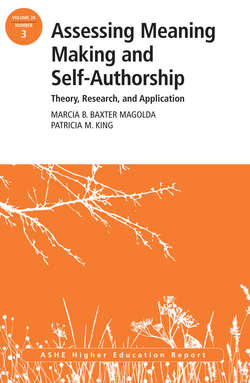Описание книги
One reason so many students fail to achieve complex learning goals may be that they rely too heavily on others’ opinions about what to believe, who to be, and how to relate to others. The meaning-making capacity of self-authorship provides a basis from which to understand and learn from one’s experiences; without this, students are at a loss to know how to make intentional choices about what to believe and how to act. Similarly, without a means to access and assess students’ meaning making, researchers are at a disadvantage in deciding how to interpret students’ academic performance and other behaviors, and educators are at a disadvantage in translating findings into the design of new programs and services. This monograph is for those who are interested in understanding self-authorship and its assessment, and in using this approach in their own work. Drawing from well-established theories and extensive longitudinal research including nearly two thousand interviews, it offers a detailed account of how young adults’ capacities become more complex and adaptive over time. Those who understand the role of meaning making will be better able to document its effects on educational outcomes and provide better information to decision makers about program effectiveness. Each monograph in the series is the definitive analysis of a tough higher education problem, based on thorough research of pertinent literature and institutional experiences. Topics are identified by a national survey. Noted practitioners and scholars are then commissioned to write the reports, with experts providing critical reviews of each manuscript before publication.
